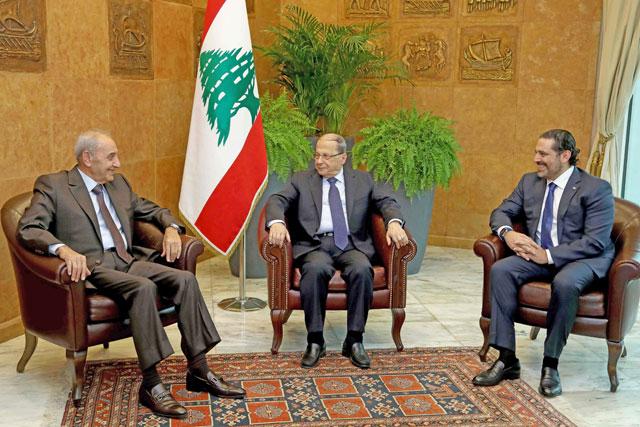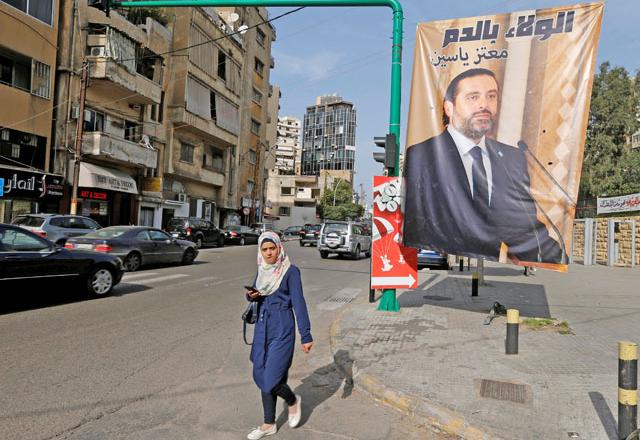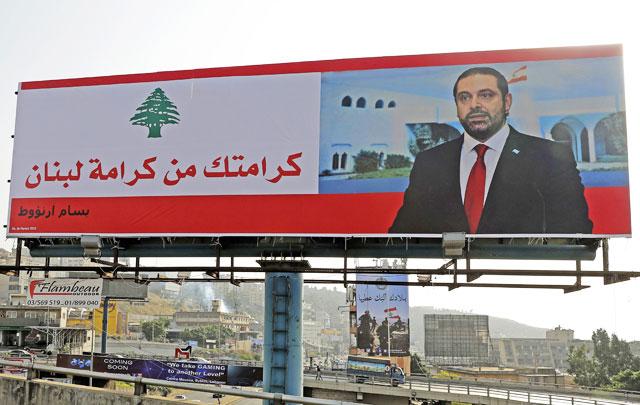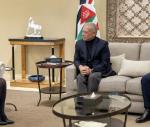You are here
One month on, Lebanon’s PM rescinds shock resignation
By AFP - Dec 05,2017 - Last updated at Dec 06,2017

Lebanon’s Prime Minister Saad Hariri speaks after a Cabinet meeting in Baabda near Beirut, Lebanon, on Tuesday (Reuters photo)
BAABDA, Lebanon — Lebanese Prime Minister Saad Hariri said on Tuesday that he had withdrawn his resignation, a month after his shock announcement that he was quitting sparked political upheaval.
The announcement brought some respite to Lebanon, which had been gripped by fears of new political and economic instability in a country riven by deep divisions and caught up in regional rivalries.
Minutes after Hariri’s announcement, Paris said the Lebanese premier would attend talks Friday in France on the situation in Lebanon, which US Secretary of State Rex Tillerson will also attend.
“The council of ministers thanks the prime minister for rescinding his resignation,” Hariri said, reading from a Cabinet statement issued after its first meeting since his return two weeks ago.
Hariri announced he was stepping down on November 4 in a televised address from Saudi Arabia, a move widely seen as part of the boiling tensions between the Saudi kingdom — a long-time Hariri backer — and its regional rival Iran.
In his resignation, Hariri lambasted Tehran and its Lebanese ally, the powerful armed movement Hizbollah, for destabilising his country and the Middle East.
He later said he would consider coming back as premier if Hizbollah stopped intervening in regional conflicts, including the wars in Syria and Yemen.
In recent days, consultations across the political spectrum have sought to find a compromise between the Saudi-backed camp led by Hariri, and Hizbollah’s Iran-backed bloc.
On Tuesday, Lebanon’s Cabinet, which includes both blocs, reaffirmed its official policy of “disassociation”, or remaining neutral in regional conflicts.
‘Disassociation’
“The Lebanese government, in all its political components, has committed to distance itself from all conflicts, wars, and internal affairs of Arab states,” according to the Cabinet statement read out by Hariri.
This “disassociation” is intended to “preserve Lebanon’s political and economic relations with its Arab brothers”, the statement added.
The policy had already been adopted by Hariri’s Cabinet, formed in 2016 after a settlement across political divides that saw Michel Aoun appointed president and the creation of a government including Hizbollah deputies.
Hizbollah has been accused of violating the policy, however, by fighting in neighbouring Syria to support the Damascus regime as well as by dispatching military commanders to Iraq and allegedly backing Shiite rebels in Yemen.
“A reaffirmation of Lebanese ‘disassociation’, notwithstanding its manifest hypocrisy and the impossibility of it being translated concretely, makes it possible to save face and win a little time,” said Karim Bitar, an expert at the Paris-based Institute of International and Strategic Affairs.
During the Cabinet meeting, according to a statement obtained by AFP, Hariri expressed the hope for “a new chance to defend the country together”.
“We see how the region is boiling and we must be aware that any misstep could bring the country to a dangerous precipice,” he told his Cabinet.
Related Articles
BEIRUT — President Michel Aoun held talks on Monday with other Lebanese political leaders over the future of Prime Minister Saad Al Hariri’s
BEIRUT — Lebanese President Michel Aoun, who has refused to accept Saad Hariri's resignation as prime minister unless Hariri returns from Sa
BEIRUT — Saad Al Hariri will return to Lebanon from Saudi Arabia within two days, he said on Tuesday, 10 days after his shock resignation as


















